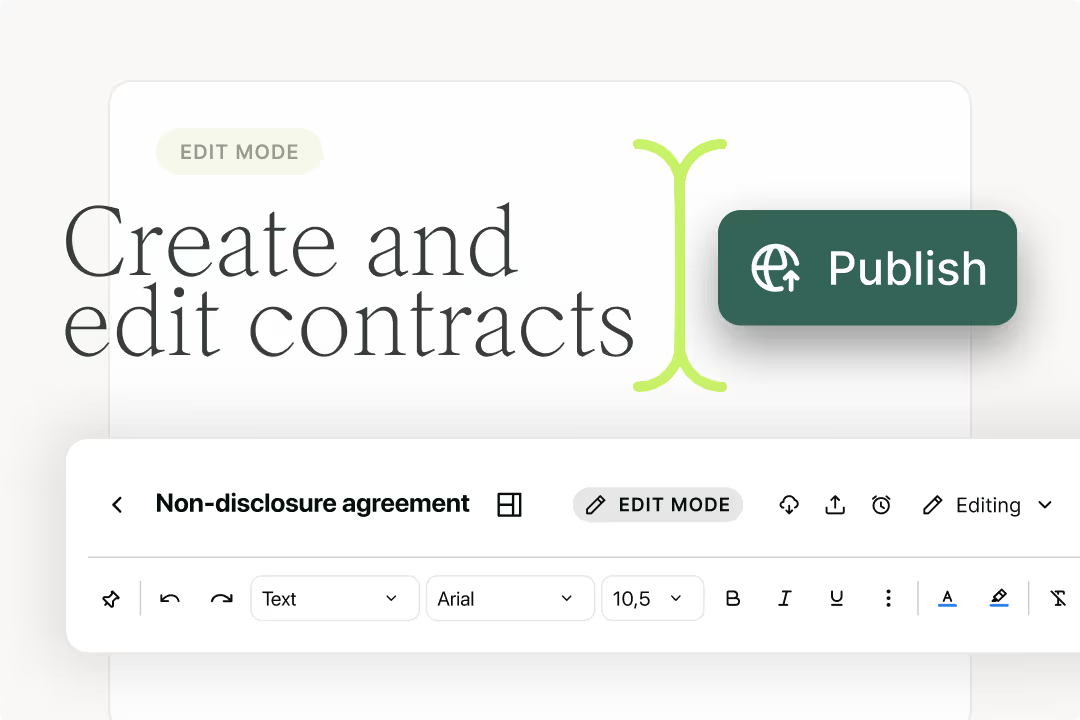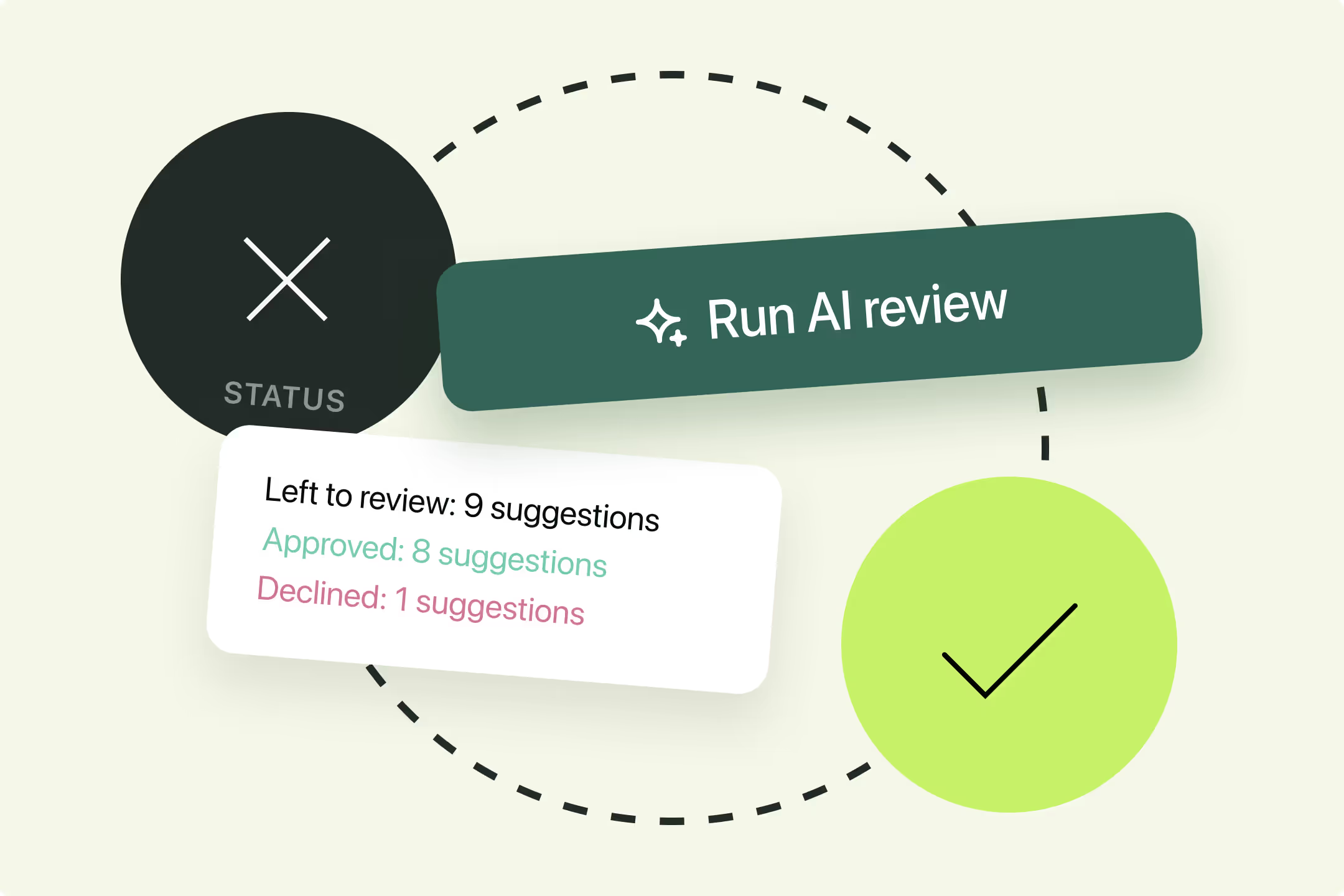Solutions
Customer Support
Resources
A contract management policy is a document or set of rules that provide guidance during contract creation and negotiation. It captures everything from best practices to approved clauses and processes, enabling other teams in the business to confidently self-serve on contracts.
Businesses can benefit from having a contract management policy in place for lots of reasons:

But to do these things, your contract management policy needs to plug gaps in contracting knowledge and cover different eventualities. And that’s why what you put the policy matters so much.
The more detailed your contract management policy or playbook is, the more control you have. Below are some ideas of what these details should be:
The contents of your contract management policy will only take you so far. You also need to implement the contract management policy, which is what most legal teams struggle most with:
We hear you.
Standardizing contracting can be hard, especially when the existing processes (or lack of) have grown so familiar and contracts are in the hands of so many different stakeholders.
But it doesn't have to be this way. Let's explore a few actionable ways you can increase adoption and bake your contract management policy into your day-to-day tools and workflows.
One of the best ways to implement your contract management policy is to automate it so it's embedded in the processes and tools you use day-to-day, with minimal manual input required.
This can be achieved by using a contract management solution like Juro. Here's how:
Juro gives legal teams the opportunity to automate their contract templates and lock certain fields, which reduces the risk of high-risk or unapproved terms sneaking into contracts.

These templates can then be populated in seconds either by pulling data in from other business tools (e.g a CRM like Salesforce), or by filling out a simple set of questions.
{{quote1}}
Juro also allows template owners to set rules and conditions for more complex contracts, or contracts where there'd otherwise be a handful of different, slightly nuanced templates floating about.
This enables businesses to consolidate their contracts and automatically vary terms based on the values within a contract, whether that's contract value, geography, or something else.
{{quote2}}
But that's not all. Juro's legal AI can use the information within your contract management policy to inform its responses to your requests. For example, it can review a contract in line with your playbook and identify key risks or deviations.

Similarly, it can draft contracts that adhere to your guardrails. This unlocks faster and more efficient workflows for the entire business.
Best of all, Juro's all-in-one contract management platform gives you the opportunity to regain control of contracts throughout their lifecycle, giving you fewer sleepless nights.
To find out more about Juro, and how it can embed your contract management policy into your workflows seamlessly, fill in the form below to book a demo.

Lorem ipsum dolor sit amet, consectetur adipiscing elit. Suspendisse varius enim in eros elementum tristique. Duis cursus, mi quis viverra ornare, eros dolor interdum nulla, ut commodo diam libero vitae erat. Aenean faucibus nibh et justo cursus id rutrum lorem imperdiet. Nunc ut sem vitae risus tristique posuere.

